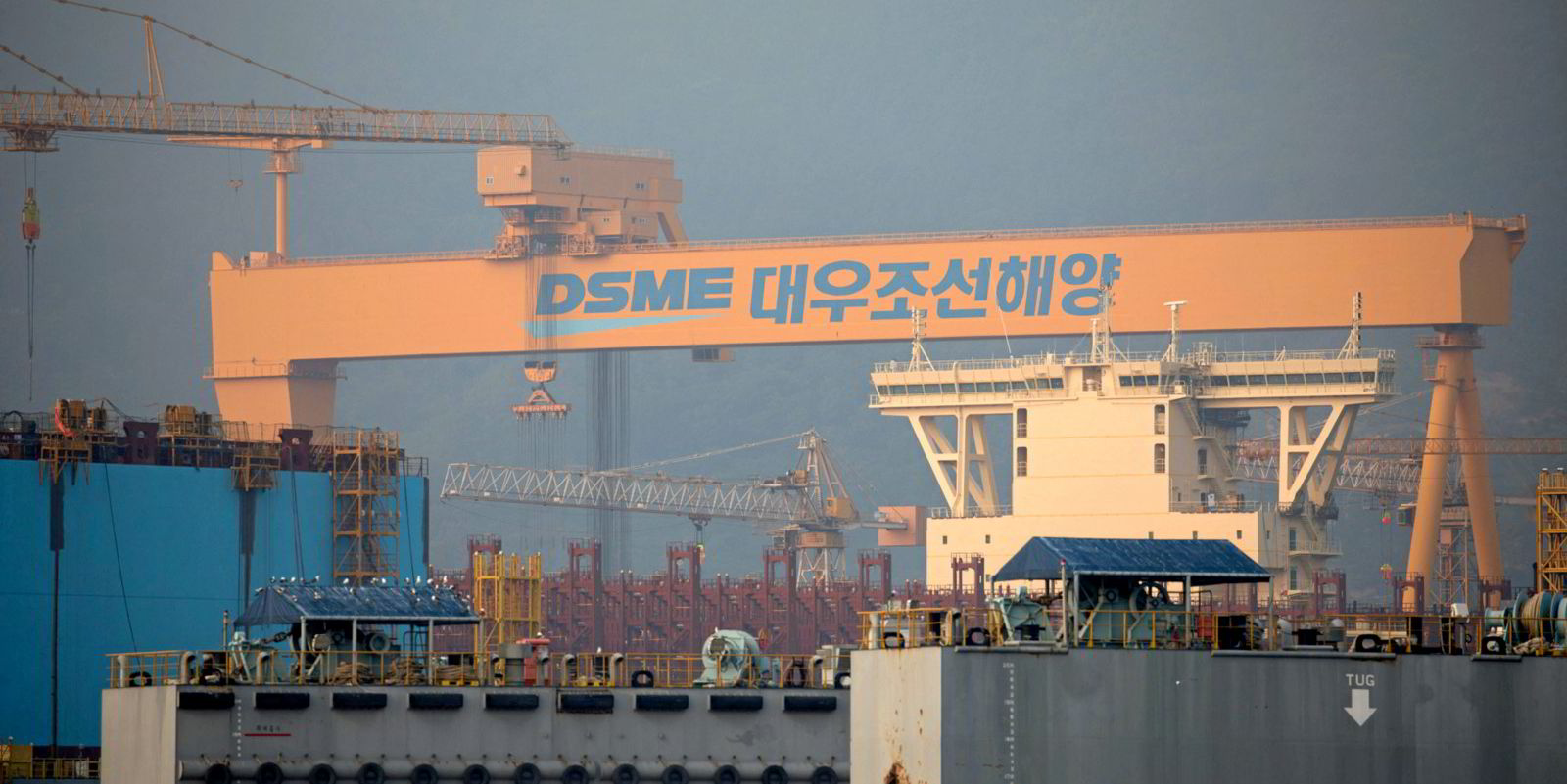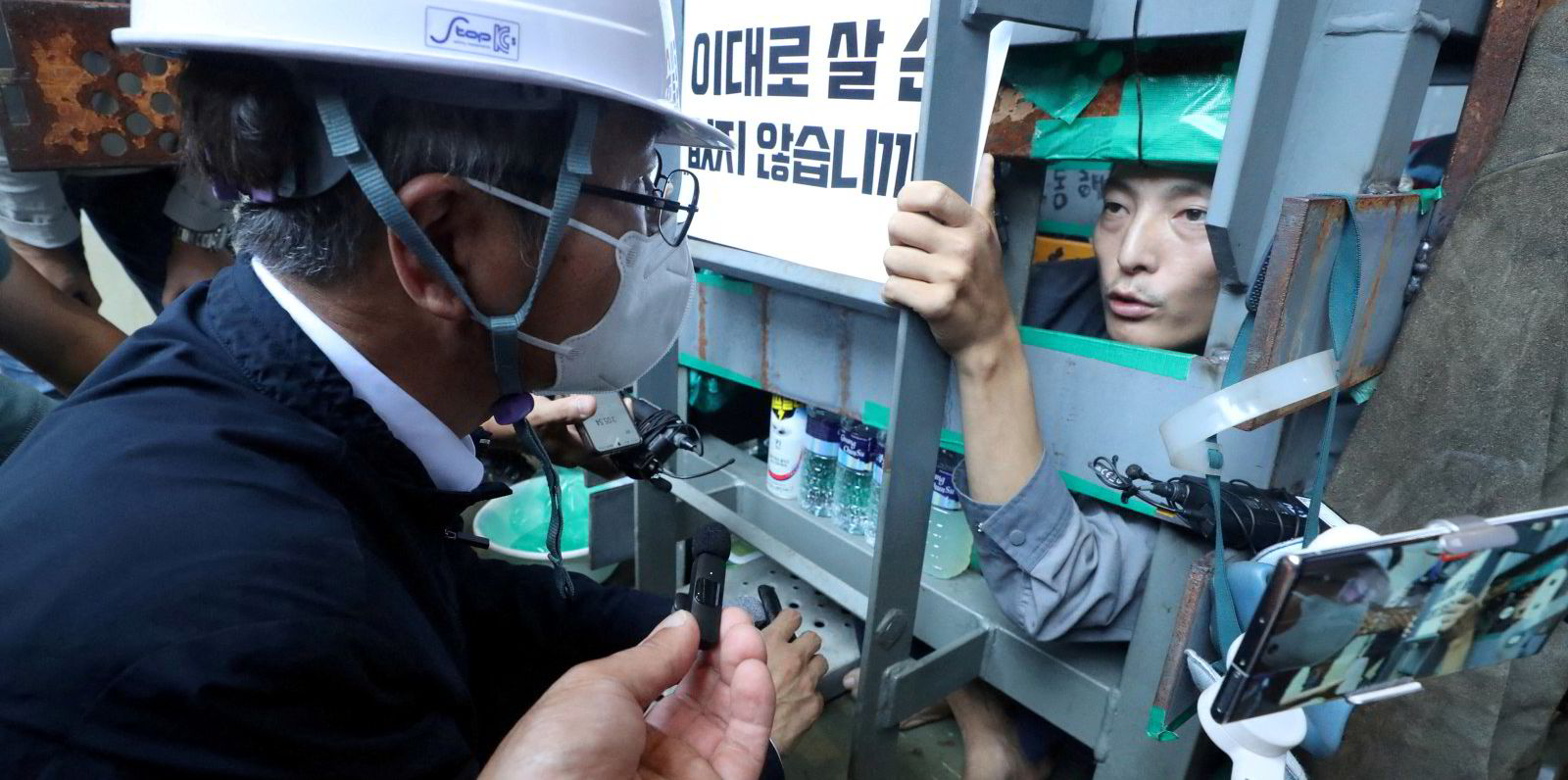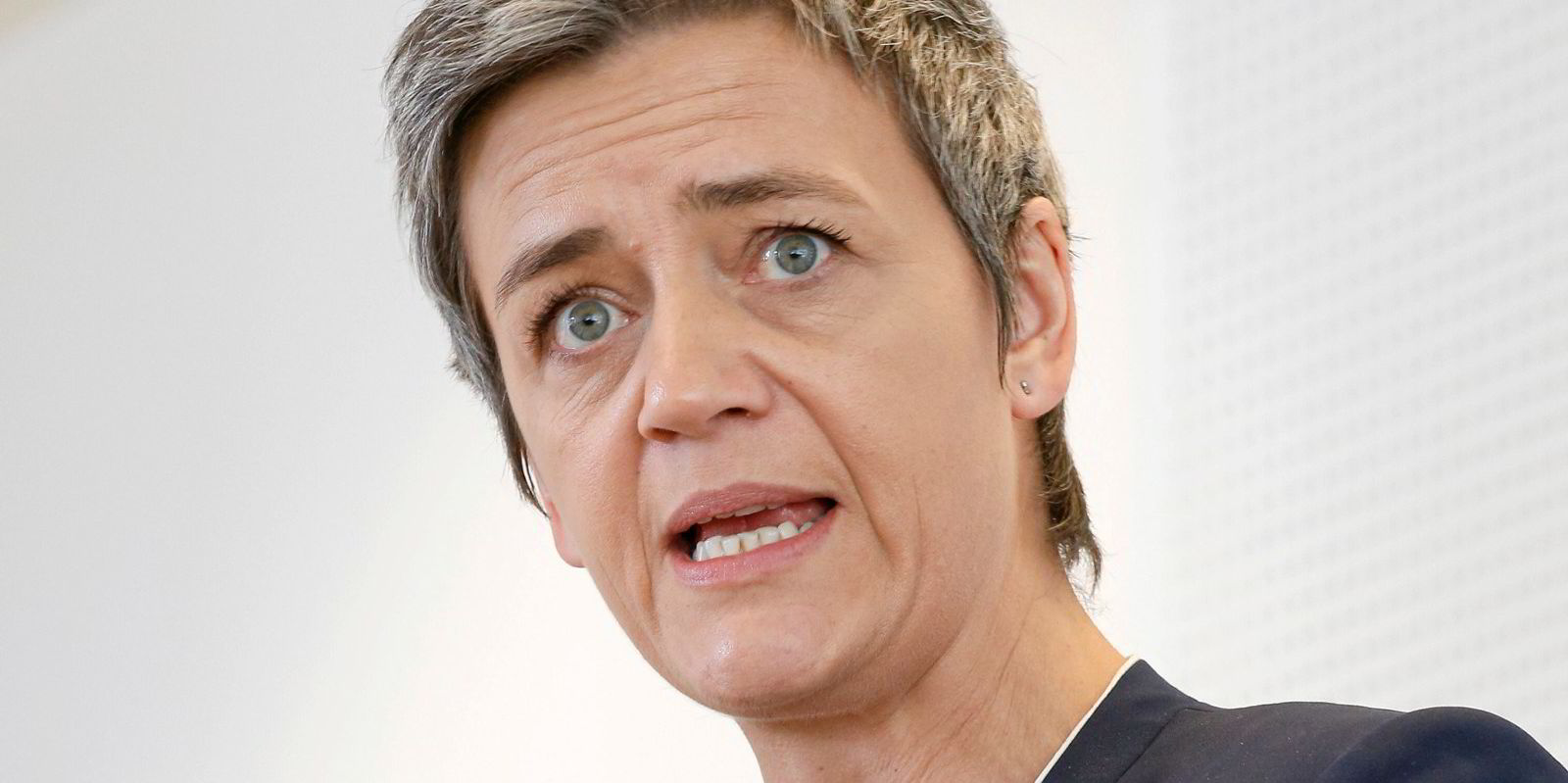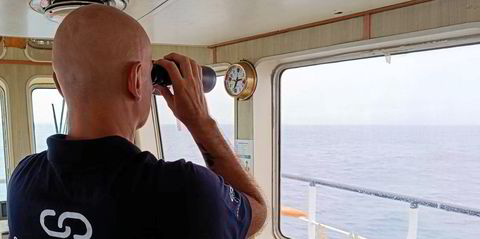A high-profile, 51-day-long industrial action at Daewoo Shipbuilding & Marine Engineering has raised questions over whether a buyer can be found for the giant South Korean shipbuilder.
The state-backed Korea Development Bank (KDB) has been trying to offload its 55.7% shareholding in the company over the last decade.
The now settled industrial action has led to criticism of management and added to the company’s debt mountain. Amid the yard’s difficulties, a new plan to sell DSME’s businesses separately has emerged.
DSME estimated that it has suffered losses amounting to KRW 800bn ($611m) as a result of the strike.
In a statement after the end of the strike on 23 July, DSME chief executive Du-Seon Park admitted to management failings. A similar strike at compatriot Hyundai Heavy Industries was settled in four days.
“The damage, including the company’s losses, was enormous, and the impact was very large in all directions. We also acknowledge the concerns about the Korean shipbuilding industry due to the lowered trust of overseas customers,” he said.
A major problem blocking the sale is a hefty price tag, likely to run into billions of US dollars, for one of the world’s largest shipbuilders.
It has a full orderbook running into 2026, made up mostly of high-value LNG carriers, which will push up the sale price. But it is also loaded with debt and has a troubled history of industrial relations.
After increases in newbuilding prices, the shipbuilder looked to be heading towards profitability, but the recent surge in the price of steel plate, shipbuilding materials and labour costs has put that in doubt.
Analysts say few companies in the maritime sector could afford to buy the company or would take the risk.
One idea now on the table, which was revealed in the local paper Korea Joong Ang Daily, is a plan to spin off DSME’s navy shipbuilding division and sell the commercial shipbuilding entity separately.
Yard sources familiar with DSME’s business suggest that the two are integrated and it will be difficult to separate docks, research and development teams and other shared facilities.
Debt problem
An official from KDB was quoted as saying no such plan was under consideration at the moment. The planned sale, he said, is still subject to the findings of an upcoming review by a management consultant.
Debt remains an obstacle to a sale with the yard’s debt ratio reportedly now running at more than 500%.
“In South Korea, companies with a debt ratio over 400% are considered unlikely to survive,” said one local manager.
There is increasing pressure for KDB not to pump more public money into the company to cover the financial impact of the strike.
Some analysts fear that the best chance to sell the company, through a merger with HD Hyundai — previously known as Hyundai Heavy Industries Holdings — may already have been lost.
Last year, European Commission competition authorities objected to the proposed merger over concerns that the two yards would dominate the LNG shipbuilding business.
In the strike settlement, union officials accepted a 4.5% wage increase, KRW 500,000 ($382) in additional pay for working on holidays and a KRW 400,000 summer vacation bonus. The shipyard has also promised job guarantees for some workers.






